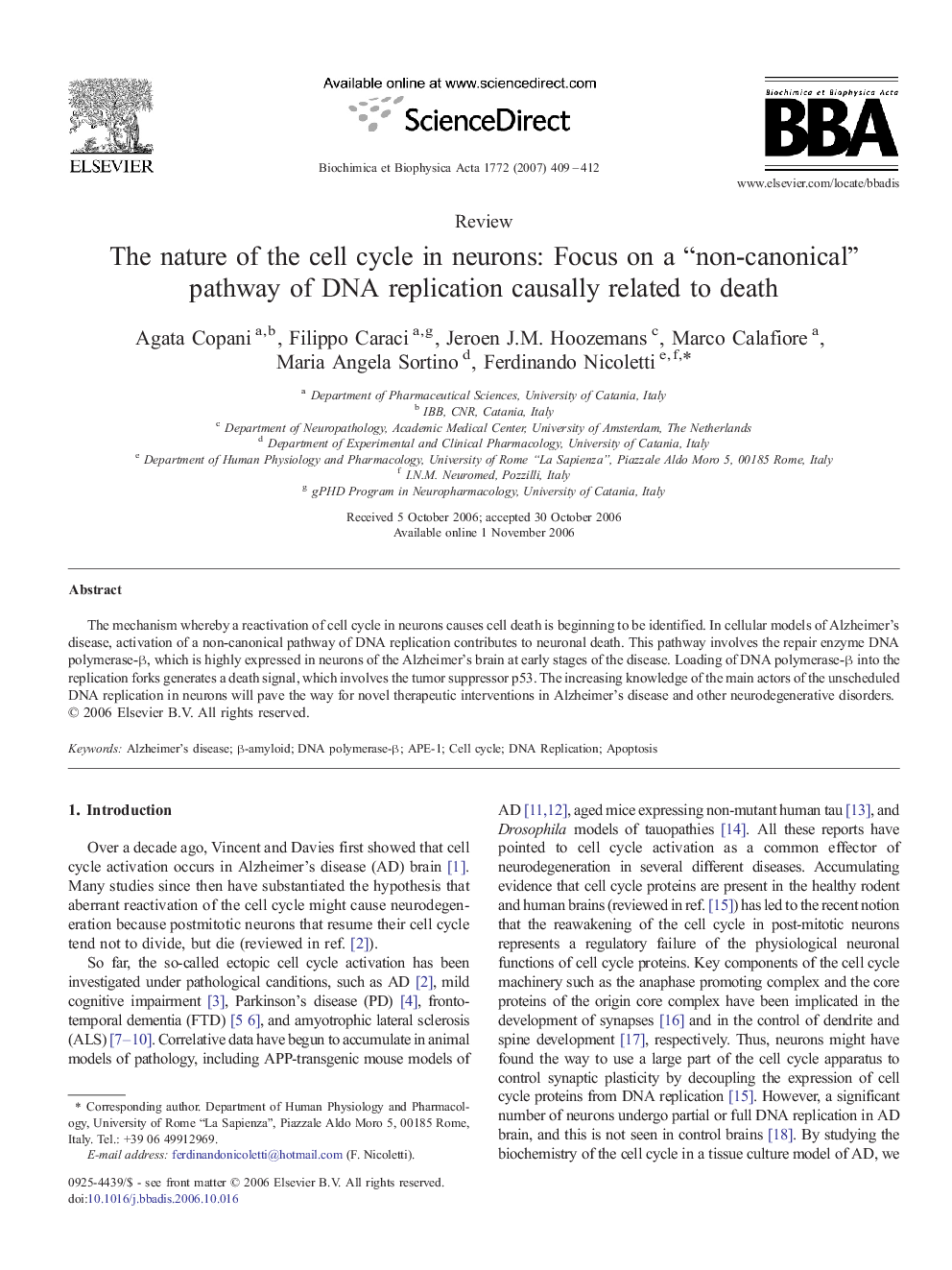| Article ID | Journal | Published Year | Pages | File Type |
|---|---|---|---|---|
| 1905817 | Biochimica et Biophysica Acta (BBA) - Molecular Basis of Disease | 2007 | 4 Pages |
Abstract
The mechanism whereby a reactivation of cell cycle in neurons causes cell death is beginning to be identified. In cellular models of Alzheimer's disease, activation of a non-canonical pathway of DNA replication contributes to neuronal death. This pathway involves the repair enzyme DNA polymerase-β, which is highly expressed in neurons of the Alzheimer's brain at early stages of the disease. Loading of DNA polymerase-β into the replication forks generates a death signal, which involves the tumor suppressor p53. The increasing knowledge of the main actors of the unscheduled DNA replication in neurons will pave the way for novel therapeutic interventions in Alzheimer's disease and other neurodegenerative disorders.
Related Topics
Life Sciences
Biochemistry, Genetics and Molecular Biology
Ageing
Authors
Agata Copani, Filippo Caraci, Jeroen J.M. Hoozemans, Marco Calafiore, Maria Angela Sortino, Ferdinando Nicoletti,
